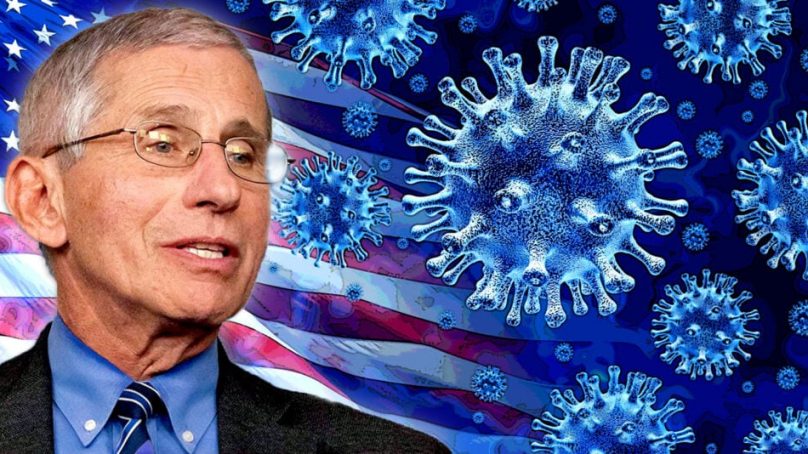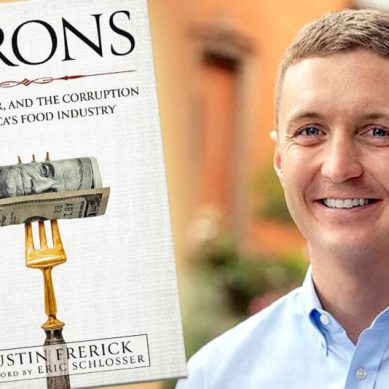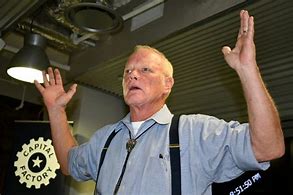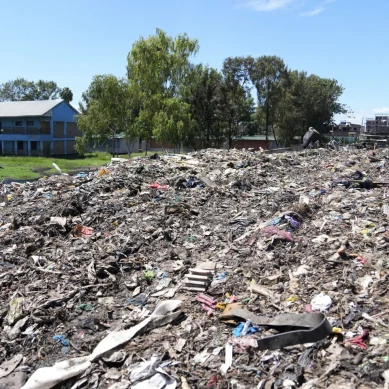
A leading biodefense official who played a key role in medical and public health preparedness under the Trump administration during the start of the Covid-19 pandemic alleged that current and former government officials, including Dr Anthony Fauci, have been “misdirecting” the public over the origins of Covid-19.
In an interview with investigative journalist Paul D. Thacker, Dr Robert Kadlec suggested that Fauci, former director of the National Institute of Allergy and Infectious Diseases, Francis Collins, former director of the National Institutes of Health (NIH) and other government officials and key virologists have been engaged in “denial and deception” about the virus’ origins.
Kadlec was assistant secretary for preparedness and response when the Covid-19 pandemic began, directing the Administration for Strategic Preparedness and Response (ASPR). He later directed a Senate committee that, in October 2022, released an interim report on the pandemic’s origin that strongly favoured the “lab-leak theory.”
According to USRTK, these documents indicate that “American researchers concealed their intention to conduct high-risk coronavirus research in Wuhan under lax safety standards from the Pentagon the year before the Covid-19 pandemic.”
In an interview with The Defender, Thacker said that these documents aren’t, in and of themselves, evidence that Covid-19 emerged from the Wuhan Institute of Virology in China, but are evidence that those involved with controversial gain-of-function research at that laboratory have been dishonest.
“It’s another example showing that these people are lying,” Thacker said. “And the strongest evidence of a lab accident in Wuhan are all the examples of the researchers lying about what they were doing in Wuhan. That’s the evidence.”
Thacker wrote this was “just the latest example of scientific malfeasance.” In his December 22, 2023 post, Thacker said that such malfeasance was aided by science writers in the media.
“It’s become a pandemic truism that researchers and their pet science writers eventually get caught dissembling when documents take the air out of authoritative statements and convictions underlined with purported scientific and journalistic authority,” he wrote.
According to Thacker, “Kadlec has worked to counter biological weapons for an alphabet soup of various agencies” for 30-plus years.
The interim US Senate report that was released under his watch in October 2022 “became a controversial exclusive by ProPublica/Vanity Fair, with a 2700 word editor’s note later added,” Thacker wrote.
According to the report, published October 28, 2022, in ProPublica, “The Wuhan lab at the centre of suspicions about the pandemic’s onset was far more troubled than known.”
Criticism then followed from parts of the scientific community, resulting in ProPublica publishing its editor’s note on November 30, 2022, stating that “Scientists, China observers and others questioned the Senate team’s findings and our reporting about them.”
ProPublica’s editors “added additional context” to the story and “also identified two factual errors inconsequential to the premise of the story” which were corrected. Yet, ProPublica maintained, “Our examination affirms that the story and the totality of reporting it marshals, is sound,” adding:
“It remains clear that in 2019, the WIV [Wuhan Institute of Virology] was addressing serious safety issues while scientists there faced pressure to perform. Risky coronavirus research took place in laboratories that lacked the maximum biocontainment safeguards, according to the interim report. …
“… The possibility that a biosecurity breach at the WIV occurred, and sparked the pandemic, remains plausible.”
According to Thacker, Kadlec – previously “operating mostly in the background” – has now emerged from the bureaucracy to assert that “federal scientists and the virologists they funded have misdirected the public and helped to cover up evidence that the pandemic began in a Wuhan lab – a lab funded with American money.”
Kadlec told Thacker that figures Fauci and Collins wanted to protect their reputations and federal funding for the research, even in the face of mounting evidence that such research could have led to the development and release of Covid-19.
“These researchers’ motives seem clear: protect reputations, protect federal grants,” according to Thacker.
To accomplish this objective, Kadlec said that “misdirection” was employed which attempted to downplay and shift public attention away from the lab-leak theory.
“It looks like an information operation to me,” Kadlec said. “It’s directing people away. And these guys did it by a variety of means. … Cover-up is one way to look at it; it seems to be a colossal misdirection.”
Kadlec noted that as early as February 2020, Fauci and key virologists were privately acknowledging, in emails between them, “that this could have been a laboratory incident.”
He also referred to one of the authors of the now-infamous The proximal origin of SARS-CoV-2 (Proximal Origin) paper in Nature Medicine in March 2020, by Kristian Andersen, professor of immunology and microbiology at the California-based Scripps Research Institute.
According to a July 2023 US House report, the Proximal Origin paper was used to “downplay the lab-leak hypothesis” and label as “conspiracy theorists” anyone who suggested the virus may have leaked from a lab. The report indicated Fauci and Collins were personally involved in the conceptualization, drafting and publication of the paper.
Kadlec told Thacker that Fauci and some scientists who co-authored that paper, including Andersen, appeared to privately acknowledge that Covid-19 could have been engineered in a set of emails and calls they exchanged on February 1, 2020, which Kadlec also received.
Noting that Fauci’s public statements denied a connection between Covid-19 and a lab leak, Kadlec said, “If anything, Fauci had information that probably said the other way.”
“Fauci got this other group, with Jeremy Farrar [then-head of the Wellcome Trust] and his buddies. And this group privately says they have concerns and then publicly say there’s no way a lab accident could happen,” he said.
Kadlec called Fauci “a real operator” who “has a vested interest in his reputation and that of his institute. And they’re inseparable.”
“I think what was driven here was reputational risk to NIH and to the two people that both advocated – Fauci and Collins – for unfettered, scientific research, meaning gain-of-function research,” he said.
“NIH-funded gain-of-function research may have resulted in this accident,” Kadlec said.
The cabal of Farrar, Collins and Fauci “seem to be the centre of what was going on,” he added.
Fauci is scheduled to appear before the US House of Representatives Select Subcommittee on the Coronavirus Pandemic on January 8 and January 9 for a two-day transcribed interview regarding “the numerous controversies that have arisen during and after the pandemic.”
According to Kadlec, though, Collins played an even more prominent role than Fauci.
“As much as you would like to think Fauci is behind this, I think Collins may be the guy,” Kadlec said. “Collins is still working in the White House. Still an advisor to the President.”
Kadlec said that Collins had even tried to stop him and ASPR from working with the National Academies of Sciences, Engineering and Medicine “to look at what the genetic sequence [of SARS-Cov-2] showed in January 2020.”
“He just called me, ‘What are you doing? Why are you doing this?’” Kadlec said, adding, “Collins, you know, has a fairly large ego. But also, he felt like the National Academies was the sole domain of the NIH. I had to remind him that I was paying the Academies to do work for me under pandemic preparedness.”
Kadlec said that scientists like Andersen “got funding from NIH to do gain-of-function research, some of it with the Chinese,” and that evidence indicating a potential lab leak had begun emerging early during the pandemic.











